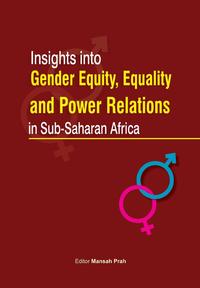Since gender entered the development discourse in the Seventies, African countries have increasingly taken the concept on board in policy and practice. This concern may be due to either one or a combination of the following factors: the ideological positioning of African countries, demands by their donors and development partners, and demands by organised local groups and NGOs. Gender in the development discourse ought to transform power relations between men and women and shift them to social relations that reflect their equal access to productive resources, opportunities and social and material benefits. The result of such actions should be an achievement of comparable status of women and men. This volume, initiated by OSSREA, seeks to examine in more depth, issues regarding the gender-power imbalance in sub-Saharan African countries, with a specific focus on the eastern and southern African regions. The chapters in this book present research that examines and analyses the effectiveness and efficiency of gender mainstreaming policies, strategies and projects developed and implemented by national and international actors. The themes inter-weave with each other although they address gender issues in specific countries and specific contexts. This can be explained by the shared colonial and post-colonial heritage of African countries. It is useful, therefore, to view the structure of the book as a spiral of inter-connected issues that address similar themes, approaching them from different levels. Purely for ease of reading, the contributions have been organised into three parts, with over arching themes that at first glance may seem not to fit well together. A theme that runs through all the chapters is the persistence of patriarchal values and attitudes in Africa and its constraining effect on the achievement of gender equity and equality. Это и многое другое вы найдете в книге Insights Into Gender Equity, Equality and Power Relations in Sub-Saharan Africa
Insights Into Gender Equity, Equality and Power Relations in Sub-Saharan Africa (книга)
Подробная информация о книге «Insights Into Gender Equity, Equality and Power Relations in Sub-Saharan Africa ». Сайт не предоставляет возможности читать онлайн или скачать бесплатно книгу «Insights Into Gender Equity, Equality and Power Relations in Sub-Saharan Africa »















